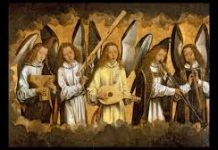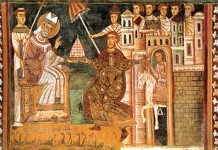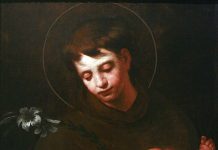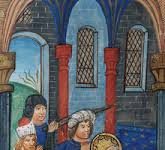On Saturday 16 December, we started the Christmas novena. As the name itself suggests, the word novena comes from the Latin ‘nouenus’ which means nine each or occurring as a group of nine. In our Catholic faith tradition, ‘novena’ points to a devotion made up of prayer requesting for some particular grace for the individual and/or for somebody else. Several are the novenas which are prayed daily over a nine successive days period.
The idea of novena we are familiar with goes back to 1618. In fact, according to John Rybolt (1985), a special novena in preparation for Christmas was known in Rome from 1618 on. This devotion consisted in the reading and singing of verses from the prophets, Novena dei Versetti. Moreover, in 1721, Fr Carlo Antonio Vacchetta (1665-1747) – pastor of the Church of the Immaculate Conception in Turin – prepared a special novena for that year’s Advent. As a consequence of that, Fr Vacchetta is best known in our times for his Christmas Novena. Adding to this, Fr. Vacchetta wrote novenas in honour of the Holy Spirit and in preparation for the feast of the Immaculate Conception.
Novenas call upon the congregation to rejoice and be glad for they all deal with the coming of the Messiah who will “destroy all evil on earth”. These are followed by “Let the Heavens be Glad”, a canticle (prayer-song) which Fr Vacchetta wrote by making use of some of the Old Testament’s lesser-known prophecies. A selection of scripture readings is accompanied by O Antiphons. Essentially, the O Antiphons consist of prayers which in brief echo and highlight the Old Testament messianic hope for Christ described in the opening prayers.
Each and every antiphon accentuates a title for the messiah such as, for example, O Sapientia (Oh Wisdom), O Adonai (Oh Lord), O Rex Gentium (Oh King of the Nations) and O Emmanuel, and each antiphon refers to the prophecy of Isaiah of the coming of the messiah. These are followed by the Magnificat and the Closing Prayer. Hymns can as well make part of this celebration and the Blessed Sacrament may be exposed if the novena is conducted by a priest.
Fr Vacchetta’s pastoral purpose was to orient his parishioners to experience the hope, faith and joy of the prophets and to seriously heed to the invitation of St John the Baptist to be renewed. Thanks to his constant exhortation for the parishioners to participate in the Christmas novena, Fr Vacchetta managed to instill in the the faithful that love and passion to embark on their spiritual journey which was symbolic of the passage from Old Testament to the New so as their Christmas celebration would leave in them abundant good fruits of greater commitment to Christ.
The Christmas novena presents to us a golden opportunity to read, sing and pray together as Church. As it stands, the Christmas novena is an Advent tradition which occurs during the last week and a half before Christmas. It great invites us as believers to wholeheartedly prepare ourselves committedly for the coming of Christ, our Saviour. The very fact that we are praying for nine consecutive days, a novena makes crystal clear for us the relevance of courage and perseverance by constantly encouraging us to pray, pray, pray till the Messiah comes to save us.
Drawing itself from the Old Testament, namely from the passages of Isaiah the prophet, the Christmas Novena helps us to pray in the following manner: 16 December: Come, Child Jesus; 17 December: Our Heart rejoices; 18 December: Let’s Prepare The Ways For The Lord; 19 December: Testimony; 20 December: A very high mission; 21 December: The Handmaid Of The Lord; 22 December: He Made Himself Meat; 23 December: Love That Saves and 24 December: We walked in the darkness.
In this respect I want to refer to what Pope Benedict XVI had to say about this Christmas Novena during his General Audience of Wednesday, 23 December 2009: With the Christmas Novena which we are celebrating in these days the Church invites us to live intensely and profoundly the preparation for the Saviour’s Birth, now at hand. The desire we all carry in our hearts is that in the midst of the frenzied activity of our day the forthcoming Feast of Christmas may give us serene and profound joy to make us tangibly feel the goodness of Our Lord and imbue us with new courage.
Come to live among us, Lord, so that we may always receive your forgiveness and mercy. Jesus our king, clothed in a robe of flesh, give us love, wisdom, and understanding at your birth. Reveal to us the mystery of your life, then send us forth to reveal your Word over all the earth. Amen.










